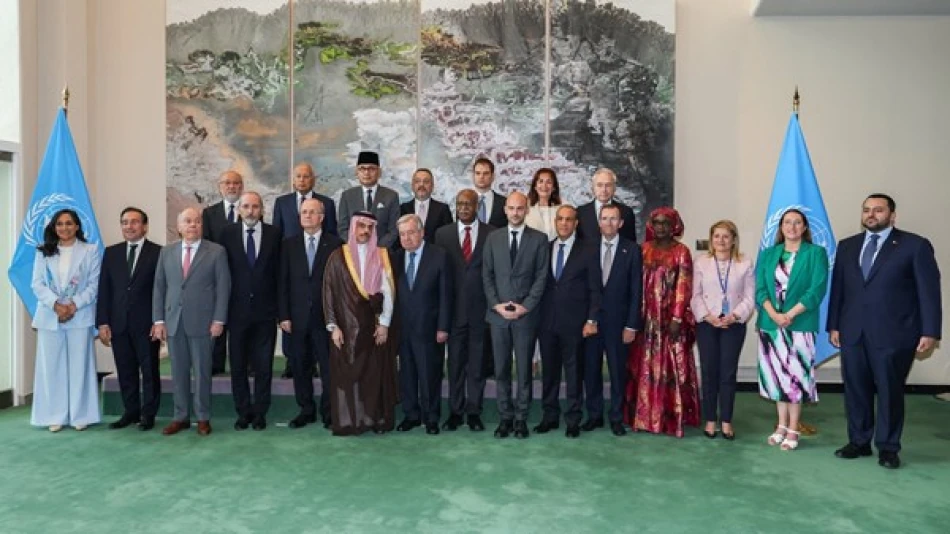
France Reaffirms Two-State Solution as Essential for Resolving Israeli-Palestinian Conflict
France Doubles Down on Two-State Solution as Palestinian Statehood Faces Existential Crisis
French Foreign Minister Jean-Noël Barrot delivered an uncompromising message at the United Nations Monday, declaring there is "no alternative" to a two-state solution for Israelis and Palestinians. His remarks, delivered at the opening of a dedicated conference examining the future of this diplomatic framework, represent France's strongest recent endorsement of Palestinian statehood amid growing international skepticism about the solution's viability.
France Stakes Out Clear Position
Barrot's statement was categorical in its certainty. "Only a political solution based on two states allows meeting the legitimate aspirations of Israelis and Palestinians to live in peace and security. There is no alternative," he told the UN gathering.
The French minister went beyond rhetorical support, calling for "concrete measures" to preserve the possibility of establishing a "viable" Palestinian state. This language suggests France recognizes that the two-state framework faces immediate threats that require active intervention to prevent its complete collapse.
Timing Reveals Strategic Calculation
France's emphatic endorsement comes at a moment when the two-state solution faces perhaps its greatest existential challenge in decades. The timing of this UN conference and Barrot's forceful language indicates European powers are attempting to salvage international consensus around Palestinian statehood before it becomes politically impossible.
European Leadership Vacuum
With the United States traditionally serving as the primary mediator in Israeli-Palestinian negotiations, France's prominent role signals a potential shift in diplomatic leadership. European nations have increasingly positioned themselves as guardians of the two-state framework, particularly as American political dynamics have complicated Washington's traditional mediating role.
The Viability Question
Barrot's emphasis on a "viable" Palestinian state acknowledges the core challenge facing any future settlement: ensuring that Palestinian statehood is economically and politically sustainable rather than merely symbolic. This language reflects lessons learned from previous peace processes that failed to address fundamental questions of territorial contiguity, economic development, and governance structures.
Concrete Measures Needed
The French minister's call for "concrete measures" suggests recognition that diplomatic rhetoric alone cannot preserve the two-state option. Such measures likely include preventing further settlement expansion, maintaining territorial integrity of potential Palestinian areas, and building institutional capacity for future governance.
International Implications
France's position carries significant weight within the European Union and could influence broader international policy. The country's permanent UN Security Council seat gives its diplomatic positions additional leverage in shaping global responses to the Israeli-Palestinian conflict.
The conference itself represents an attempt to maintain international focus on long-term political solutions rather than allowing the situation to drift toward a permanent status quo. France's leadership in convening such discussions positions it as a key player in any future peace process, regardless of which parties ultimately serve as primary mediators.
Most Viewed News

 Layla Al Mansoori
Layla Al Mansoori






